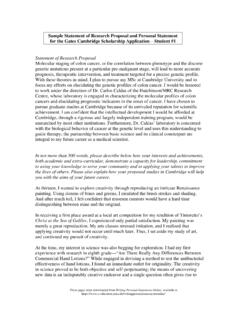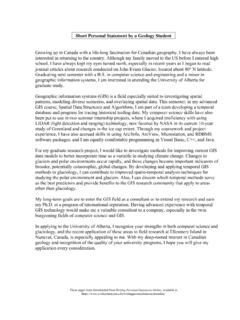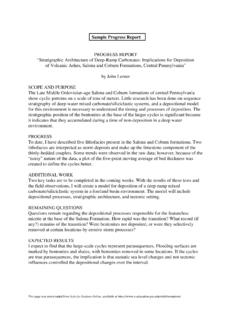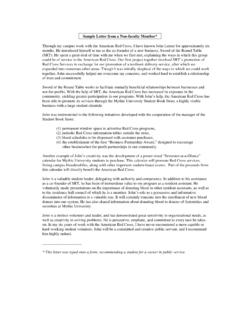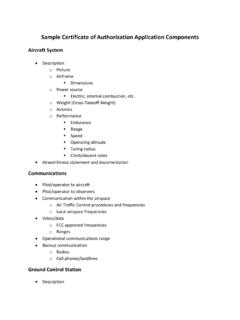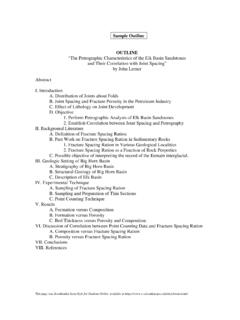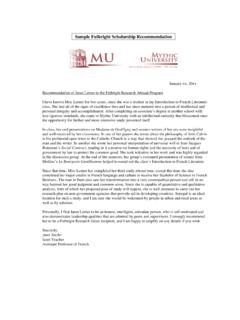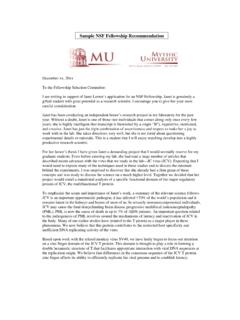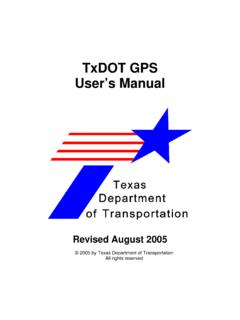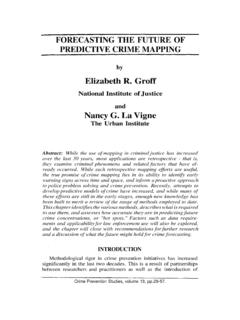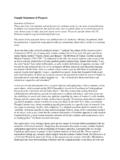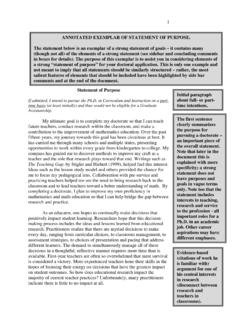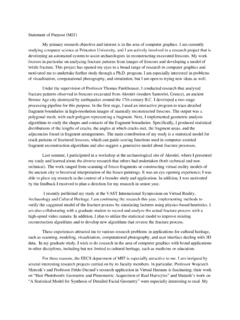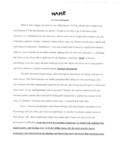Transcription of Sample Personal Statement for the Fulbright Scholarship ...
1 These pages were downloaded from Writing Personal Statements Online, available at Sample Personal Statement for the Fulbright Scholarship Student #1 My grandparents have touched many lives: former drug addicts, refugees, neighbors, and my own. They have an uncommon ability to build relationships; they are a paradigm of service where service is more than what you do and is also defined by who you are. In my own life, I have aspired to affect people in the manner of my grandparents and others in the Mennonite Church. I still have that aspiration, but my vision has expanded.
2 Prior to attending Mythic College, I pictured myself living in Mythic County near my family and my roots. I grew up attached to the local way of life, working at my family s snack food business, raising crops to earn money, and leading the local Future Farmers of America. During high school, I read the international section of the paper but the people and events seemed a world away. At Mythic College, professors challenged me with realities such as the fate of 500 million people who are chronically malnourished. I began to ask myself, Why will I have thirty food options at breakfast tomorrow while whole populations around the world will wake up with almost nothing to eat?
3 In the summer of 20xx, I traveled to Ecuador, equipped with rudimentary Spanish, a background in international politics and economics, and a desire to meet people, hear their stories, and learn from them. In Ecuador, the effects of a devastating financial crisis in 2000 still lingered. Many people had watched helplessly as banks froze savings accounts while the national currency plummeted, melting the life savings of many Ecuadorians. Like helplessness, dependency often stems from a lack of opportunities. The children who begged on the streets of Quito depended upon strangers for money.
4 If they were going to eat they had to beg. Reflecting on such matters, as part of my studies I had asked myself, What is the goal of development? Through the plight I witnessed among Ecuadorians, I came to define development as building the productive and institutional capacities that give people opportunities to lead lives that they value. After my travels, I returned to Mythic County in December of 20xx and ate Christmas dinner at my grandparents farmhouse. I knew that this area was my home, and that my family was the source of my inspiration. I also knew that my passion for studying international development would take me away from Mythic County.
5 But my grandparents had taught me to empathize and act. While aware of problems within Mythic County, I had seen much greater need in Latin America. Driven by the values instilled in me, I contacted Mennonite Economic Development Associates (MEDA) to work on a development project. In June of 20xx, I traveled to Peru to assist with an innovative approach to agriculture lending pioneered by MEDA. While working for MEDA, I assessed a microcredit project involving rice farmers. The experience impressed upon me the value of a grassroots understanding as well as the importance of sound macro-level policies.
6 Tariff rates, financial regulations, and public infrastructure plans could mean the difference between the project s success or failure. I left Peru convinced that sound trade and development policies could profoundly affect people s lives. Shaping macro-level policies became my goal. With this goal in mind, I hope to pursue a law degree and a Master of Public Policy with an emphasis in international development. These degrees will give me the tools to craft and analyze development policy. I will use my experiences and education to hope to shape such policies in Latin America.
7 These pages were downloaded from Writing Personal Statements Online, available at Sample Statement of Grant purpose for the Fulbright Scholarship Student #1 John Lerner Statement of Grant purpose Peru, Economic Development Through my Fulbright independent research project I hope to better understand the production decisions made by Peruvian rice farmers in northern Peru. On what factors do farmers base their decisions to enter, to continue, or to exit rice farming? On what factors do farmers base their specific production decisions, how much rice to plant? Can accepted microeconomic theory explain these decisions or is another explanation needed?
8 How do cultural or socioeconomic factors influence the decision-making process of these farmers? Finally, how should the answers to these questions affect agriculture development policy in Peru? Should the Peruvian government use the new state-run Agro Banco to subsidize rice farmers whom the formal capital markets ignore? Understanding production decisions of small-scale farmers requires an understanding of the context in which they operate. Therefore, I will focus the first part of my project on understanding this context. One critical consideration is assessing the current trade, investment, and agriculture policies, such as the Agriculture Financial Rescue bill (RFA), that affect small-scale producers.
9 Other important context issues include the production and price trends in the Peruvian rice market and the major international and domestic players in that market. Developing a grassroots understanding of small-scale rice farming is both timely and necessary. It is timely because it complements current development organization trends. The Bagua Grande microcredit project, which I was involved with this year, is part of a larger shift in focus of development organizations that has occurred in the last ten years. Popularized by the success of the Grameen Bank, microcredit lending has boomed.
10 The latest trend within microcredit lending is small-scale agriculture. This trend is popular among small development organizations as well as large agencies such as the Agency for International Development (USAID). In fact, USAID funded the Bagua Grande project as part of its multi-million dollar poverty alleviation project in Peru known as Project PRA. Understanding small-scale agriculture is crucial in addressing poverty in Peru. According to the Peruvian Institute of Statistics and Information (INEI), the rural poverty rate was 35% higher than urban poverty rate in 2002.
